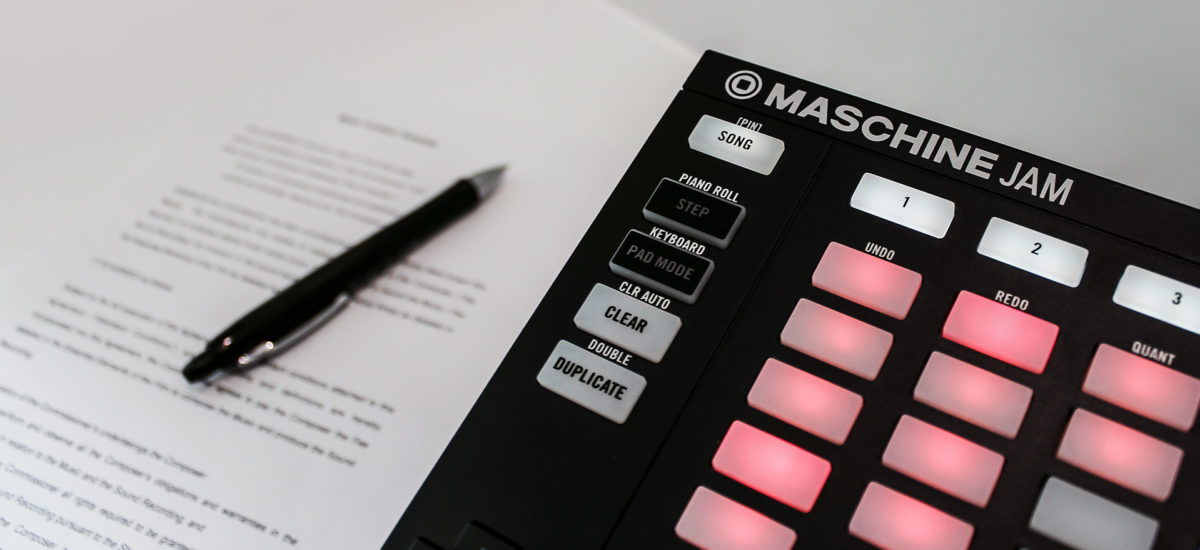
You’ve just finished your first track, and it sounds great. It turns out that one of your favourite record labels thinks so too, because they’re keen to release it. Before you go about signing on the dotted line though, there are a few important things you need to know. Speaking to a leading industry experts, Native Instruments provides the rundown of everything you need to know before signing your rights over for your first record deal.
The contract you sign will have a large impact on your career, whether you’re a newcomer or already an established artist. In fact, if a contract hasn’t been weighed in your favor early on in your career, it could have a serious impact on your trajectory as an artist.
To shed some light on the issues at hand, Native Instruments spoke to Vic Sapphire, an LA-based lawyer who specializes in the field of brand identity. Sapphire has close to 20 years of experience representing artists, labels, distributors, and promoters within dance music, in addition to having a music career of his own. “Anybody can start a label at the moment,” Sapphire says. “If you recognize this as a reality, there are several things that are important to be aware of when signing your first contract.”
1. Bargaining position
Sapphire emphasizes a few home truths for young producers that are worth keeping in mind. Namely, that if you’re just starting within the electronic music sphere, then your bargaining position when signing your first contract is likely not going to be the strongest.
“If you’re a newcomer without a track record yet, you’re not entering into things with a strong bargaining position. This doesn’t put you in a place to be able to command any particular terms or advances.” In spite of this, it still pays to be aware of the limited ways that you can actually try and steer the terms of the contract to your advantage.
“If there’s not a lot of money on the table, try and get as much of the percentage [of royalties] on it that you can. You wanna get a nice chunk. But again, you’re a new artist at this stage.”
This leads to what Sapphire refers to as the “dreaded exposure element”, which realistically will account for the majority of what you will take away from your early releases as a producer. However, this is something that can also be worked to your advantage. “One way to leverage the ‘exposure’ angle might be to try and work into the deal that you get a couple of remixes alongside your track, which the label manages and releases itself,” Sapphire says.
Make sure that the label actually does its work and gets its records carried by DJs
The next factor that needs serious consideration when signing a contract – the record label itself. What is its musical focus, as well as reputation, professionalism, and reliability? “In this release environment, certainly within house and techno, there’s a huge amount of new music being released at the moment,” Sapphire says. “What you’ve got to determine ahead of time is whether the label that you’re being courted by is the one that you want to actually sign a record deal with. You want to make sure you do your homework. First of all, the artists and records on there are what you might recognize yourself as a music fan, as well as being situated in the particular genre or music space that you want to build your profile within.
“Secondly, you want to make sure that the label actually does its work and gets its records carried by DJs, and hopefully even by a lot of big DJs who are playing within the genre you’re trying to represent.” This involves taking a close look at the marketing resources that a label might possess. Do they have the infrastructure in place to ensure that your record will get the coverage and exposure it deserves?
“When it comes to the marketing aspect of things, a label isn’t going to be throwing tour support or any of that kind of that stuff at you at this early stage. But perhaps you can at least see if you can get some kind of commitment on what sort of promotion they’re going to be doing for the release.”
2. Exclusivity
Another of the most important elements that an artist needs to be aware of when signing a contract is exclusivity. If your contract states that a particular release will be exclusive to that particular record label, and it turns out the label you’ve signed with isn’t reliable, then it might not only stop your track from being released, but also legally prevent you from taking it somewhere else.
“If the label doesn’t get around to releasing it, the record could end up in purgatory,” says Sapphire. “This is where a ‘pay or play’ provision comes in useful. You can request that a label must release a record within six to twelve months, and if it doesn’t then the rights revert back to you.”
What happens if you sign to some small label that nobody has ever heard of, but it happens to have the ear of Sasha and Digweed
This leads to the next point relating to exclusivity – for exactly how long will this exclusivity last? “This might be something worth talking about when you’re drawing up your contract,” says Sapphire. “Perhaps you want it to be a limited window of a few years, and they’re allowed a certain amount of remixes if it’s a big hit, but then the rights revert to you after a certain number of years. This means you’ll have the option of signing it to another label. Who controls all of that stuff will be fairly important.”
Where the notion of exclusivity becomes even trickier is when it applies to multiple releases. Ultimately, seeking to avoid an exclusive commitment for an extended period of time is the way to go.
“What happens if you sign to some small label that nobody has ever heard of, but it happens to have the ear of Sasha and Digweed or someone like that? They’re spinning it, the superstar DJs are picking it up. All of a sudden, you’re someone to be reckoned with in a certain way. When John Digweed calls you up and says, ‘Hey man, I want to release you on Bedrock,’ you want to be able to say yes.”
3. Options
The final thing to watch out for is the ‘options’ that a label can claim on your music. This refers to the terms offered by the label that it is allowed the ‘option’ of either fulfilling or revoking on, as they see fit.
“Options are different things for different labels,” says Sapphire. “Generally though, I think they’re uniformly pretty bad for artists. They’re basically locking in artists to commit to a label, while the labels only have the ‘option’ of committing to these terms themselves. If they don’t exercise that option, and you’ve signed up for a seven-release commitment, then you can be stuck for quite a while without the opportunity to move to what might be a better home for your records.”
This is actually one of the reasons why you see artists releasing under multiple names in different genres
Options are most often discussed in the context of an album deal – as in, an artist might sign up for what’s referred to in the media as a ‘seven-record deal’.
“Of course, it’s only a commitment to release the first album, and even then it’s not a solid commitment. It’s just an option on the other six after that first release, and the rest of it isn’t really committed to anything in terms of budget. This is a concept that also scales down to the options that a record label might reserve when it signs a multi-single deal with an emerging artist – something that would definitely weigh the scales in favor of the label.”
“Options in this instance will mean you’re committed contractually to releasing only and exclusively through them. It goes beyond what’s known as the ‘first right of refusal’, which means if they don’t want to release it then you have the option of taking a piece of music somewhere else.
“And this is actually one of the reasons why you see artists releasing under multiple names in different genres. They commit that artist identity to the label that does that particular genre. And then, they’re free to take their other stuff elsewhere. If for example someone is doing deep minimalist techno under one name, they can sign to a label that’s great for that, and then take all their trance stuff and go to the rainbows and unicorns label down the street. You’re signing under multiple ‘identities’.”















